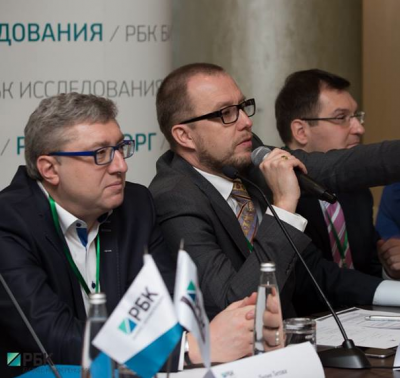“Pharmaceutical producers realize that they can hardly affect macroeconomics and that the condition of the market will remain difficult for some time. However, no one is going to leave the market. Producers change strategies of development, optimize spendings and work on staff and business processes,” said ARPM Director General, Victor Dmitriev at the RBK conference “Pharmaceutical business in Russian- 2016”.
Pharmacy chains also were affected by the economic crisis. According to Chairman of A.V.E Temur Shakaya, the industry ща pharmacies hopes for better cooperation with producers via direct contracts. “By the end of 2016, the company is planning to sign around 300 contracts with producers. A direct cooperation of pharmaceutical companies with pharmacy chains allows to save some money for pharmacies, and therefore, provide their products at more affordable price,” said Mr. Shkaya
Participants of the conference also discussed the topic of the single market within the Eurasian Economic Union (EUEU). According to Mr. Dmitriev, not all the industry’s expectations have been implemented. Some regulatory documents are not fully designed. Therefore, the market members have some questions regarding the application of the new regulation. Chairman of Delloite, Oleg Berezin noted that the single market does not fully functioning at the moment. The reason to that is partially due to some countries joined the Union with some limitations. For example, Kirgizstan and Armenia will have a lower custom’s fees than in the EAEU. Those conditions will be saved for up to 2020, but those countries are limited to reexport imported medicines. Therefore, those medicines will not enter our market up to 2020,” said Mr. Berezin. A similar situation is in Kazakhstan, where there are low customs fees for some medicines, that are also not allowed to enter the Russian market.
Participants of the conference also discussed the new legislation. ARPM Director General, Victor Dmitriev noted that in different regions of Russia, the low “Odd man out” is being applied differently. However, the Association and regulators are trying to fix the situation by working with regional Chambers of Commerce and Industry. “It is important to develop horizontal relations between the Russian Chamber of Commerce and Industry and their regional bodies. It is those regional bodies that issue the CT-1 certificate. Based on the reference of our members, we see that deadlines and approach to certification do not meet, as well as the definition of the “local product”,” said Mr. Dmitriev.
Experts also discussed missed of inspections of production facilities with respect to GPM standards. According to German Inozemcev, starting 2014, Russian pharmaceutical producers must work with accordance to the GMP. Also, all factories that import medicines to Russia must have GMP certificates, starting January 1, 2016. Pharmaceutical companies are ready for the new legislation, however, there are risks in its application. “It is impossible to hold inspections of every production facility even in one year, therefore, it is important to establish a transition period in order to prevent stop of production and shortage on the market of the low price segment of medicines”, Mr. Dmitirev.

